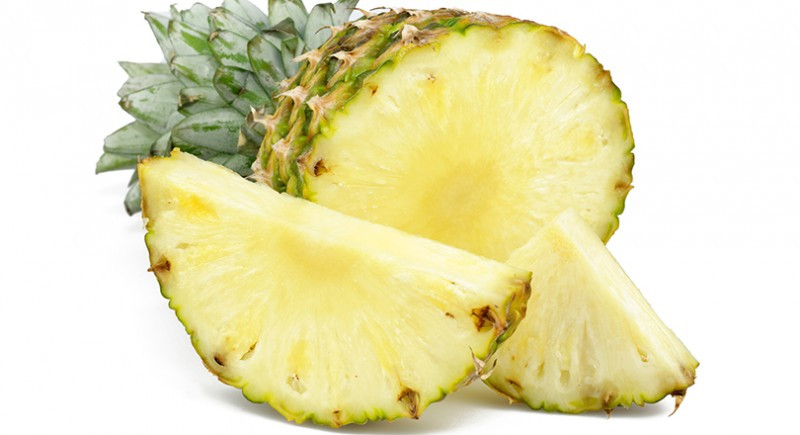Many of us have grown up believing that anything that's good for what ails us isn't going to taste very good, and were it not medicinal, we wouldn't be touching it with a 10-foot pole. There are exceptions to the rule. One of them is that sweet, juicy fruit known as pineapple, which contains a protein-digesting enzyme known as bromelain. Once extracted from the pineapple, bromelain has the potential to clear things up healthwise in a variety of ways.
What Is Bromelain?
Pineapple is native to Central America and South America, per National Institutes of Health (NIH), eventually finding its way to Hawaii in the early 20th century, where it is now often associated with Hawaiian culture for all the world to see. Bromelain is extracted from the stem of the pineapple although it can also be found in the fruit's juice as well as the fruit itself, and it can be used either by itself or in combination with other compounds known to provide health benefits. One of those is an arthritis medication in which bromelain is combined with a protein known as trypsin as well as rutin, a substance found in buckwheat, per webmd.com. Bromelain works, in part, by apparently activating a bodily process for creating substances that thwart pain and by reducing the inflammation that causes swelling. It also has chemicals that, among other properties, can inhibit the clotting of blood. Even though bromelain can be extracted from pineapple, eating the fruit or drinking its juices will supply only a trace amount of the enzyme, per healthline.com, not enough to have much of an added positive effect on your health. Per draxe.com, bromelain has fibrinolytic, antiedematous, and antithrombotic properties, which together work to prevent blood clots, edema, and swelling.Bromelain's Health Benefits
- Joint pain. A research trial referenced at draxe.com that involved the evaluation of 42 osteoarthritis patients found that giving the patients two to three 650-milligram bromelain capsules a day on an empty stomach reduced the pain by up to 60 percent in trial subjects beset with acute pain, and by 50 percent in those with chronic conditions.
- Cardiovascular disease. With its capacity to prevent the sticking or clumping together of blood platelets, bromelain is believed able to slow blood clotting and therefore stave off heart-related events and diseases, per healthline.com, such as peripheral artery disease, stroke, and heart attack. It has also been deemed effective in treating high blood pressure.
- Digestive disorders. As an enzyme, bromelain not only helps with the digestion of proteins, it also assists your body in absorbing nutrients and medications with heightened effectiveness. Studies referenced at draxe.com also showed it can reduce inflammation of the colon and diminish the secretion of inflammatory-causing cytokines known to cause damage to the gut lining.
- Asthma. This is one of the areas in which bromelain's anti-inflammatory characteristic comes in handy, helping to clear air passageways. Similarly, the compound has been showed in studies to be effective in reducing the swelling, congestion, and other symptoms linked to chronic sinusitis. Essentially, bromelain helps you breathe easier when you're otherwise congested.
- Skin burns. In the form of a topical cream, bromelain can help the skin heal from burns by safely and effectively removing damaged tissue from wounds as well as second- and third-degree burns, per healthline.com.
- Surgery recovery. Chalk up this bromelain capability to its anti-inflammatory property as shown in treating patients who have undergone the extraction of impacted third molars, a procedure that requires significant post-operative wound healing and produces swelling, and which leaves the patient with significant pain once anesthesia wears off. Per draxe.com, of the 80 people involved in the study, those who were prescribed bromelain reported significantly less post-surgery pain than those prescribed a generic painkiller.
- Weight loss. A 2017 PLOS One article pointed out that stem bromelain has been used as an anti-obesity agent by alternative medicine practitioners. Some studies, also per draxe.com, have revealed that bromelain helps downregulate adipocyte fatty acid-binding protein, fatty acid synthase, and lipoprotein lipase.

